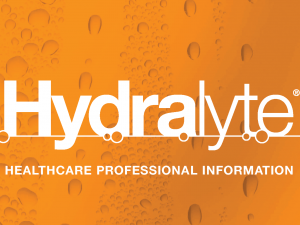Academic pharmacist Nataly Martini provides key information on Helicobacter pylori pathophysiology, diagnosis and evidence-based treatment strategies to enhance patient outcomes
Pharmacists’ views sought on codeine rule change
Pharmacists’ views sought on codeine rule change

We want to know where they (pharmacists) stand on the rescheduling, whether they think it was a step in the right direction, whether it improved people’s pain management or limited access when they needed it
Auckland University researchers want to hear pharmacists’ experiences and opinions on the rescheduling of codeine and its impacts on patients.
In November 2020, codeine-containing medicines moved to prescription-only. It affected nearly 30 products, including Panadeine, Nurofen Plus and Codral Cold and Flu.
Researchers at the university are asking pharmacists who were working when codeine was available as a pharmacist-only medicine to answer an anonymous online survey.
Topics covered by the questions include the benefits and challenges of the rescheduling of codeine, availability of analgesics, accessibility to opioids via prescribers, misuse of and harm from opioids, and patient pain management.
Bachelor of Pharmacy Honours student Armaan Birring is doing the research for his dissertation, supervised by Auckland Pharmacy School senior lecturer Rhys Ponton and Carina Walters, a professional teaching fellow at the university’s School of Population Health.
Similar studies have been done in Australia canvassing pharmacists’ or patients’ opinions, but this is the first one in New Zealand, says Mr Birring.
He’s hoping to get most of the responses to the survey by the end of this month so he can analyse them and meet his dissertation deadline. The research will be submitted to a scientific journal.
“We want to know where they (pharmacists) stand on the rescheduling, whether they think it was a step in the right direction, whether it improved people’s pain management or limited access when they needed it,” says Mr Birring.
The questionnaire can be done on a computer or phone and will take five to ten minutes. Those who complete it have the chance to win one of three $100 vouchers.
Dr Ponton says it helps if the pharmacists have worked since the codeine regulations changed: “They have experience of both sides of the coin.”
There’s a bit of a toss-up between the risks of misuse of and harm from codeine and restrictions on it affecting others who may need pain relief once in a while, but can’t afford to see a prescriber, he says. And if people urgently need strong pain relief for dental pain, for example, and can’t get an appointment with their GP or dentist, they may clog up emergency departments.
Other medications such as Maxigesic, which contains paracetamol and ibuprofen, give good pain relief but may cause contraindications in some people such as asthmatics or those with stomach ulcers, says Dr Ponton. The only option in those cases is paracetamol, or a rub cream if a person has muscle pain.
The researchers are going into the study with open minds:
“I have my own opinions but am keeping them to myself, I don’t want to bias things. We will see how things shake out after the results come in,” says Dr Ponton.
A participant information sheet says findings may be used to “make recommendations to ensure health inequities are reduced and that patients who require analgesia are able to access it promptly whilst preventing opioid misuse”.








